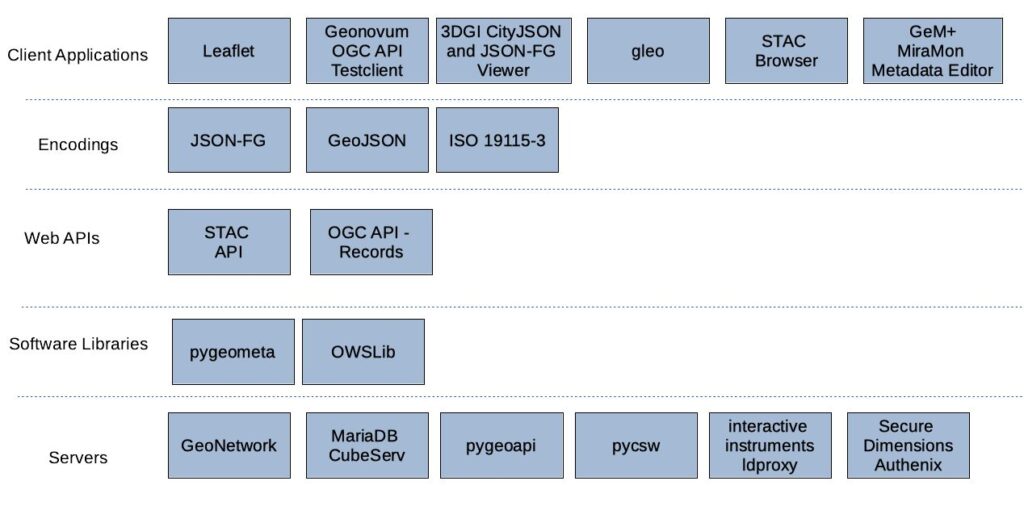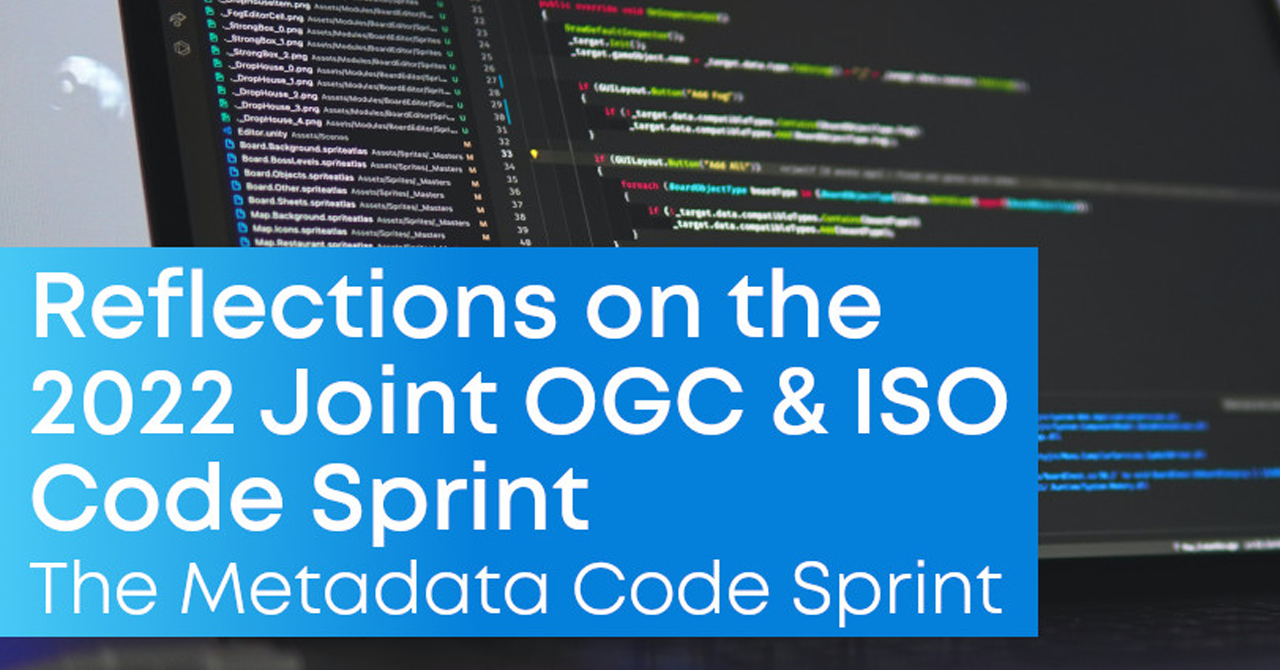Over the past two decades, standards such as ISO 19115:2003 and the OGC Catalog Services for the Web (CSW) have been integrated into several Spatial Data Infrastructure (SDI) initiatives at national and international levels. These standards leveraged the Extensible Markup Language (XML) which, at the time, was the primary encoding for data exchange in IT. In recent times, however, the uptake of JavaScript Object Notation (JSON) and Web Application Programming Interfaces (APIs) has necessitated the modernization of existing metadata and catalog approaches.
In November 2021, the Open Geospatial Consortium (OGC) and Technical Committee 211 (TC 211) of the International Organization for Standardization (ISO) held their first joint code sprint. The success of that first joint code sprint provided the foundation for a second joint code sprint, held September 14-16, 2022. The second joint code sprint, named the 2022 Joint OGC and ISO Code Sprint — The Metadata Code Sprint, served to accelerate the support of open geospatial standards that relate to geospatial metadata and catalogs. The code sprint was sponsored by Ordnance Survey (OS) at the Gold-level and Geonovum at the Silver-level. Unlike the first, virtual, code sprint, this sprint was held as a hybrid event, with the face-to-face element hosted at the Geovation Hub in London, United Kingdom.
The code sprint focused on the following group of specifications:
- OGC API - Records candidate Standard
- ISO 19115 metadata Standards (i.e., ISO 19115-1, ISO 19115-2, ISO 19115-3)
- OGC Features and Geometries JSON (JSON-FG) candidate Standard
- Spatio-Temporal Asset Catalog (STAC), which leverages the OGC API - Features Standard
The discussions during the code sprint covered topics such as harmonization of STAC and OGC API – Records; harvesting of metadata to populate instances of OGC API – Records; the possibility of a JSON-FG encoding for OGC API Records and STAC; the possibility of a JSON encoding of ISO 19115; and others.
The demonstrations showcased at the end of the code sprint included client-side and server-side implementations of OGC API – Records, JSON-FG, STAC, and ISO 19115 metadata. A high-level overview of the sprint architecture is shown below.

The code sprint successfully facilitated the development and testing of prototype implementations of OGC and ISO Standards that relate to geospatial metadata and catalogs. The code sprint also enabled the participating developers to provide feedback to the editors of candidate standards. The code sprint therefore met all of its objectives and achieved its goal of accelerating the support of open geospatial standards that relate to geospatial metadata and catalogs.
The sprint participants made the following recommendations for future innovation work items:
- Initiatives to facilitate implementation of JSON-FG (e.g. three-dimensional (3D) data, cadastral data, etc.)
- Initiatives to facilitate implementation of catalogs
- Prototyping of tools for creating metadata (e.g. the automated STAC metadata crawler and dataset tagger demonstrated during the sprint)
The sprint participants also made the following recommendations for activities that the Standards Working Groups should consider:
- Outreach for promoting JSON-FG
- Code Sprint for designing profiles of JSON-FG for different communities of interest
- Documentation of the different roles of catalogs and API, as well as guidance on when to use them
- Code Sprint on versioning, possibly involving both OGC API - Records and OGC API - Features
- Exploring how to move GeoDCAT forward within OGC
This was the first hybrid code sprint (consisting of both in-person and remote elements) organized by OGC in more than two years, due to the pandemic. A record number of participants registered to attend the code sprint, exceeding pre-pandemic registration numbers. There were however, more remote participants than those attending in-person. This suggests that there continues to be significant interest in code sprints, and that the online collaboration environment that OGC uses in code sprints should continue to be used post-pandemic.
From OGC, ISO, and Sprint Sponsors Ordnance Survey and Geonovum, we send a big thank you to everyone that participated. We look forward to seeing you at the next code sprint, the Web Mapping Code Sprint, on November 29th to December 1st, 2022, in Brussels, Belgium.
Further information on the Sprint is available on the Metadata Code Sprint wiki.
